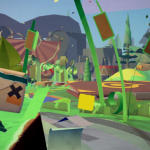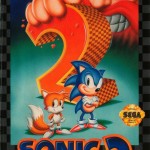When Games Matter is a weekly exploration by Drew Dixon of meaningful moments in games. Operating under the assumption that games do in fact matter, Drew seeks to highlight those moments that have much to say about who we are and the world we live in.
J. Nicholas Giest, writing for Kill Screen, reflecting on the popular videogame God of War III, recently said:
In God of War III, and most of the games I’ve played, violence simply is. Killing is a part of the vehicle of the game, the mechanism by which the story functions, some means to an end, or something the game’s developers took for granted. It is so assumed that violence is a part of videogames that almost any conversation about videogames becomes a conversation about violence . . .
It does not bother me that Kratos is violent. It bothers me that he learns nothing from his violence. He never doubts it or questions it. He loses nothing to it and takes nothing from it. It consumes his family, his life, his afterlife, and his godhood, but his commitment to it never wavers. The consequences of his violence never touch him.
I do not fear that violence in videogames teaches us to be violent.
What I fear about violence in videogames is that it teaches us nothing at all.
Too often games play like power fantasies where macho men take on the world killing hundreds of people along the way and never stopping to consider the consequences of such actions. As graphics improve and games lean toward hyper-realism this becomes even more concerning. Giest goes on in his article to suggest that its time for a game that forces us to deal with the consequences of violence.
The only game I have played that comes close to exploring the consequences of violence is Fumito Ueda’s Shadow of the Colossus. In Shadow you play as “the wanderer” and the goal of the game is to hunt down and slay 16 giant mythical creatures (“Colossi”) in order to release a dark power that will resurrect the wanderer’s lost love. I don’t want to ruin the game for you but these Colossi are not violent creatures—they only attack once you provoke them. There certainly is an epic feel to the process of climbing these giants and slashing them with your sword while hanging on for dear life. That epic feel fades with each victory, however, as the game subtly and somberly confronts you with the reality of what you are doing. You are slaying peaceful and majestic creatures for your own selfish ends. As a result, the Wanderer appropriately ends the game alone.
Shadow is a fantasy game—set in a surreal and somber world and yet it captures the darkness of the human heart more poignantly than any hyper-realistic game I have played. There is a place for power fantasies and I admit to getting sucked into them. They remind me of why I find games so fascinating—because of the agency they afford us. But agency free from responsibility only leads to disillusionment. As the world begins to take games more seriously we must ask games to stop defaulting to power fantasies and take an honest look at the world.










